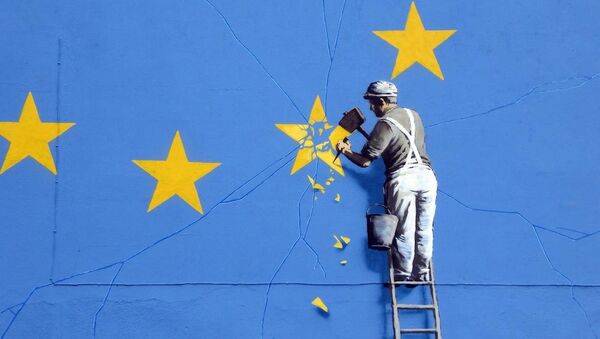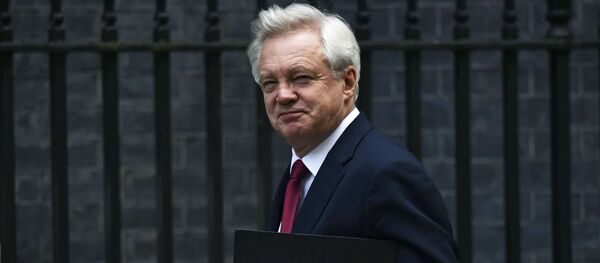Sputnik discussed the issue with Geraint Johnes, professor of economics at Lancaster University.
Sputnik: How likely is it that Theresa May will actually fire Foreign Secretary Boris Johnson?
Geraint Johnes: Clearly there’s been a lot of division within the British cabinet about the direction that the Brexit talks should take going forward and there’ve been some very strong opinions on both sides. Essentially the choice has been between a relatively soft Brexit that will please certainly a lot of companies that trade extensively with the European Union and where there are supply chains that are deeply interlinked between the UK and the European Union, but it will disappoint also a lot of people that favor a hard Brexit that would allow Britain to strike independent trade deals with other countries. And Boris Johnson has been very much on the hard Brexit side; he’s probably been the most outspoken critic of a soft Brexit and it depends entirely now as to whether he can maintain the discipline which is required by collective responsibility within the cabinet.
READ MORE: Former UK Brexit Minister Fears EU to Demand More Than London Already Offered
There’s a lot of division within the ruling Conservative Party more generally and there are players that are quite apart from Boris Johnson, people like Rees-Mogg, for example, who may well take exception to the type Brexit that’s been envisaged now by the UK government as a collective force. So the opposition within the Conservative Party doesn't need to come from Boris Johnson, he’s one potential figurehead, but there are others there, and there has been some disquiet among some of the hardline Brexiteers in the Conservative Party about the type of deal that Theresa May and her government, which includes Boris Johnson, are now be working towards.
Sputnik: Can you comment at least on what role Boris Johnson has played so far and what impact he has had so far in the Brexit negotiations, if at all, or do you think Theresa May's basically doing her thing?
Geraint Johnes: It’s been a dissenting role. Theresa May has ultimately had to do her thing, she’s been in a weak position as part of the British government because of the division that exists there, but the proactive generation of solutions to this dilemma of how Britain exits the European Union have been coming more from soft Brexiteers and Theresa May herself, in particular.
Sputnik: What are your thoughts? Do you think that the European Union doesn’t want a softer Brexit?
Suppose you import a plate and then re-export that plate. What is there in that plate that triggers the technology to say: “Hey, a tariff has got to be paid on this!” This is fantasyland! The proposals that the UK's coming up with are going to have to stand up to a reality check and the European Union will then drive the UK either in the direction of a softer Brexit still or a harder Brexit. We don’t know which way that cookie is going to crumble.
The views and opinions expressed in this article are solely those of the author and do not necessarily reflect those of Sputnik.





